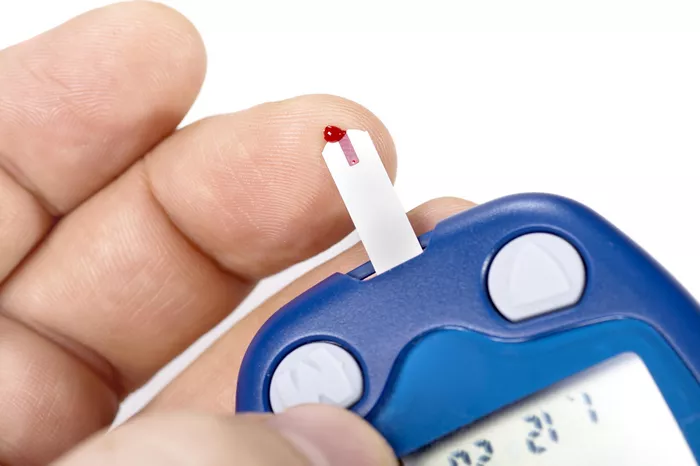Type 1 diabetes mellitus (T1DM) is a chronic autoimmune disorder characterized by the destruction of pancreatic beta cells, leading to an absolute deficiency of insulin production. Insulin therapy serves as the cornerstone of treatment for individuals with type 1 diabetes, playing a pivotal role in regulating blood sugar levels and preventing acute and chronic complications associated with the disease. In this comprehensive article, we will delve into the mechanisms of insulin action in type 1 diabetes management, explore the different types of insulin therapy available, and discuss the implications for overall health and well-being.
Understanding Type 1 Diabetes Mellitus
Type 1 diabetes mellitus is an autoimmune condition characterized by the immune-mediated destruction of pancreatic beta cells, which are responsible for producing insulin. Without sufficient insulin production, individuals with type 1 diabetes cannot effectively regulate their blood sugar levels, leading to hyperglycemia, metabolic imbalances, and potentially life-threatening complications. The exact cause of type 1 diabetes remains incompletely understood, but it is believed to result from a combination of genetic predisposition and environmental triggers, such as viral infections or dietary factors.
Role of Insulin in Type 1 Diabetes Management
Insulin therapy is indispensable for individuals with type 1 diabetes due to the complete absence of endogenous insulin production. Insulin serves several crucial functions in type 1 diabetes management, including:
1. Regulation of Blood Sugar Levels: Insulin plays a central role in regulating blood sugar levels by facilitating the uptake of glucose into cells and promoting its storage as glycogen in the liver and muscles. Without sufficient insulin action, glucose accumulates in the bloodstream, leading to hyperglycemia and its associated complications.
2. Prevention of Ketosis and Ketoacidosis: Insulin therapy helps to prevent the development of ketosis and ketoacidosis, potentially life-threatening complications of type 1 diabetes characterized by the accumulation of ketones and metabolic acidosis. By promoting glucose uptake and utilization in cells, insulin inhibits the breakdown of stored fat into fatty acids and ketone bodies, thereby preventing the buildup of ketones in the blood.
3. Reduction of Long-term Complications: Long-term insulin therapy is crucial for preventing chronic complications of type 1 diabetes, including cardiovascular disease, neuropathy, nephropathy, and retinopathy. By achieving and maintaining target blood sugar levels, insulin therapy helps to reduce the risk of microvascular and macrovascular complications associated with diabetes mellitus.
Types of Insulin Therapy for Type 1 Diabetes
Several types of insulin formulations are available for the management of type 1 diabetes, each with unique characteristics and profiles. The main types of insulin therapy include:
1. Rapid-Acting Insulin: Rapid-acting insulin analogs, such as insulin lispro, insulin aspart, and insulin glulisine, have a rapid onset of action and a short duration of action. They are typically administered before meals to control postprandial blood sugar spikes.
2. Short-Acting Insulin: Short-acting insulin, also known as regular insulin, has a slower onset of action and a longer duration of action compared to rapid-acting insulins. It is typically administered 30 minutes before meals to control postprandial blood sugar levels.
3. Intermediate-Acting Insulin: Intermediate-acting insulin, such as NPH (neutral protamine Hagedorn) insulin, provides basal insulin coverage over an extended period. It is often used in combination with rapid-acting or short-acting insulin to provide both basal and prandial coverage.
4. Long-Acting Insulin: Long-acting insulin analogs, such as insulin glargine and insulin detemir, have a gradual onset of action and a peakless profile, providing basal insulin coverage throughout the day and night.
Implications for Health and Well-Being
Effective insulin therapy is essential for maintaining glycemic control and preventing acute and chronic complications associated with type 1 diabetes. However, insulin therapy is not without challenges and considerations, including the risk of hypoglycemia, weight gain, and injection site reactions. Individuals with type 1 diabetes require comprehensive education and support from healthcare providers to manage their condition effectively and optimize their quality of life.
Conclusion
Insulin therapy plays a critical role in the management of type 1 diabetes mellitus, providing essential support for regulating blood sugar levels and preventing acute and chronic complications associated with the disease. By understanding the mechanisms of insulin action, exploring the different types of insulin therapy available, and addressing the implications for overall health and well-being, individuals with type 1 diabetes can take proactive steps to manage their condition effectively and lead fulfilling lives. Through a collaborative and multidisciplinary approach to care, healthcare providers can empower individuals with type 1 diabetes to achieve optimal glycemic control and improve long-term health outcomes.


























